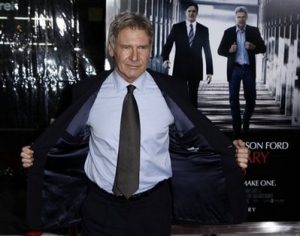Truth is often more compelling than fiction, and filmgoers love a heartfelt human interest story. Extraordinary Measures seems to have everything going for it: A touching story based on the best-selling book The Cure, a timely subject in healthcare, and two high-profile actors in Brendan Fraser and Harrison Ford.

Fraser plays John Crowley, a real-life businessman shown at the beginning of the film working at Bristol-Myers. The movie starts with the introduction to Crowley, who tries to balance work and family. He arrives in the nick of time for his daughter Megan´s birthday, revealing the Crowley family, with John’s wife Aileen (Keri Russell) and their three children John Jr., Megan, and Patrick.
But all is not well. Time is running out for 8-year-old Megan and 6-year-old Patrick, both who have Pompe disease, a rare genetic disorder caused by an enzyme deficiency that leads to muscle weakness and typically death. The family seems to be out of options, but a near-death experience for Megan at the hospital prompts John to reach out to Dr. Robert Stonehill (Ford), an eccentric scientist. He works at the University of Nebraska with experimental research that could hold a cure for children suffering from Pompe.
Nevertheless, Crowley gives it his all: “I can’t just sit there while my kids are dying.” He quits his successful job and moves his family to go into business with Stonehill, building a chance for a cure. Stonehill has a scientific breakthrough, Crowley has the business smarts to market it, but it’s still a question of whether they can have a cure ready in time to save Crowley´s children.
At this point Extraordinary Measures shifts its focus from a family-based medical drama to a critique of the corporate establishment. Their start-up company runs into all manner of impediments, most of them predictable: not enough money, not enough time, not enough experience in trying to get a drug to market.
Director Tom Vaughan’s film certainly means well and it gets some things right, even when it might have taken an easier route. Yet the overall feel is one of a generic, feel-good drama, albeit one with Harrison Ford stomping around most of the time as if someone kicked him in the shins.
Yet one thing Vaughan gets exactly right is the Crowleys’ relationship with their children. Despite the severity of their illness, they’re still kids. They are perfectly capable of misbehaving and of being punished for it. They live with their children, and their children’s illness, day and night. It’s their reality, and most treat it as such. Most films take a sappier approach. Extraordinary Measures does not.
Had Vaughan applied the same focus to the rest of the film, it would have been all the more effective, and all the better, as well.







